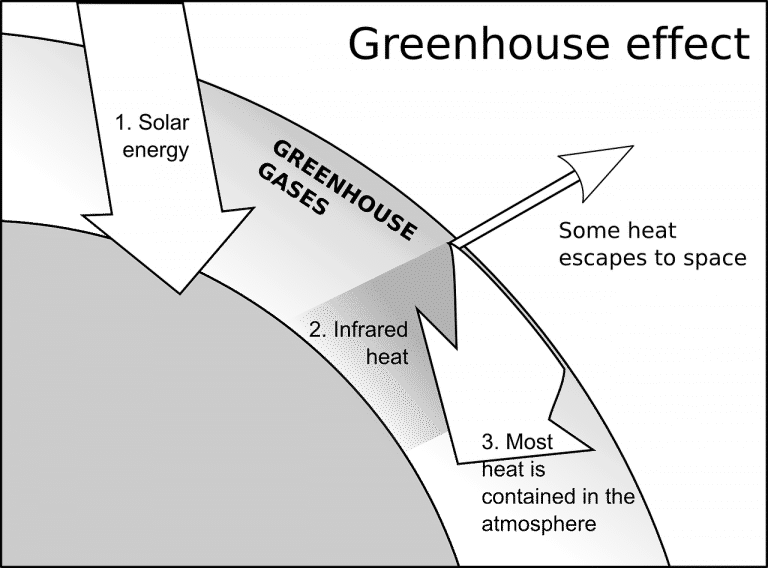
What is Greenhouse effect, its causes & Natural Energy Hub
Planet Earth What Is the Greenhouse Effect? References By Marc Lallanila published 8 March 2018 (Image credit: Shutterstock) While other planets in Earth's solar system are either scorching hot.

Greenhouse Effect Vector Illustration Diagram Stock Illustration Download Image Now iStock
Greenhouse gases such as methane, carbon dioxide, nitrous oxide, and water vapor significantly affect the amount of energy in the Earth system, even though they make up a tiny percentage of Earth's atmosphere. Solar radiation that passes through the atmosphere and reaches Earth's surface is either reflected or absorbed.

The ImpEE Project Improving Engineering Education
The Greenhouse Effect A greenhouse is for growing plants. It is made of glass or clear plastic to let in lots of sunlight. But why not just put the plants outside? A greenhouse stays warmer than the air outside. Instead of cooling off at night, it traps some of the heat inside to keep the plants warm.
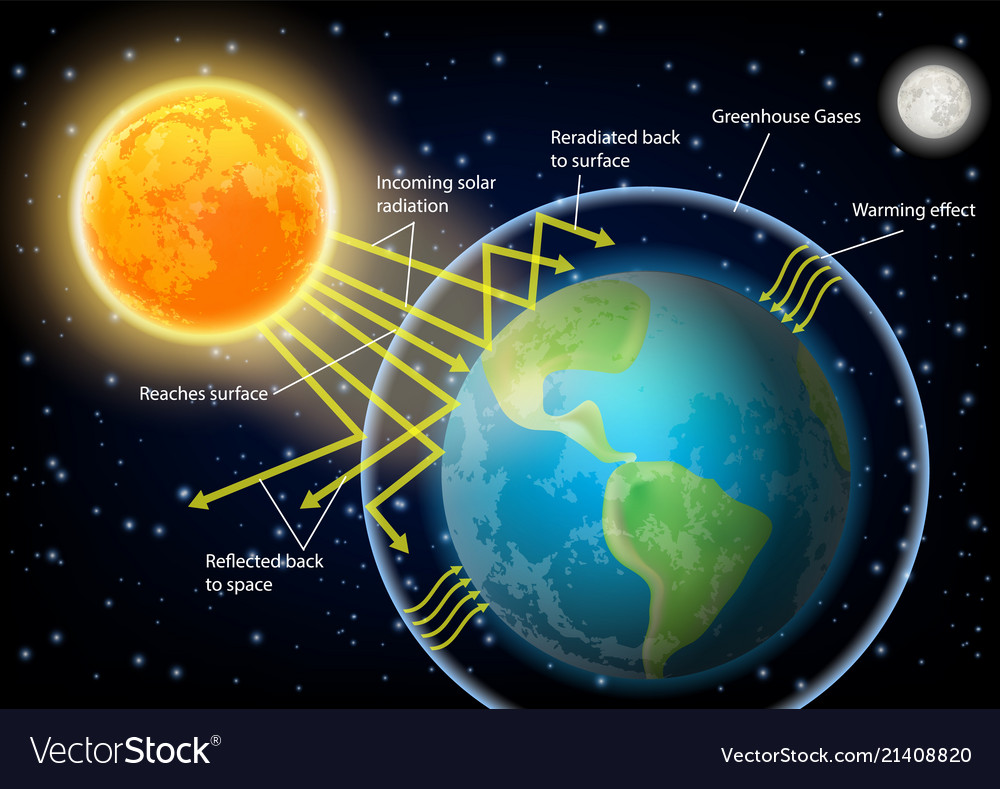
Greenhouse effect diagram Royalty Free Vector Image
The greenhouse effect is a process that occurs when gases in Earth's atmosphere trap the Sun's heat. This process makes Earth much warmer than it would be without an atmosphere. The greenhouse effect is one of the things that makes Earth a comfortable place to live. What Is the Greenhouse Effect?
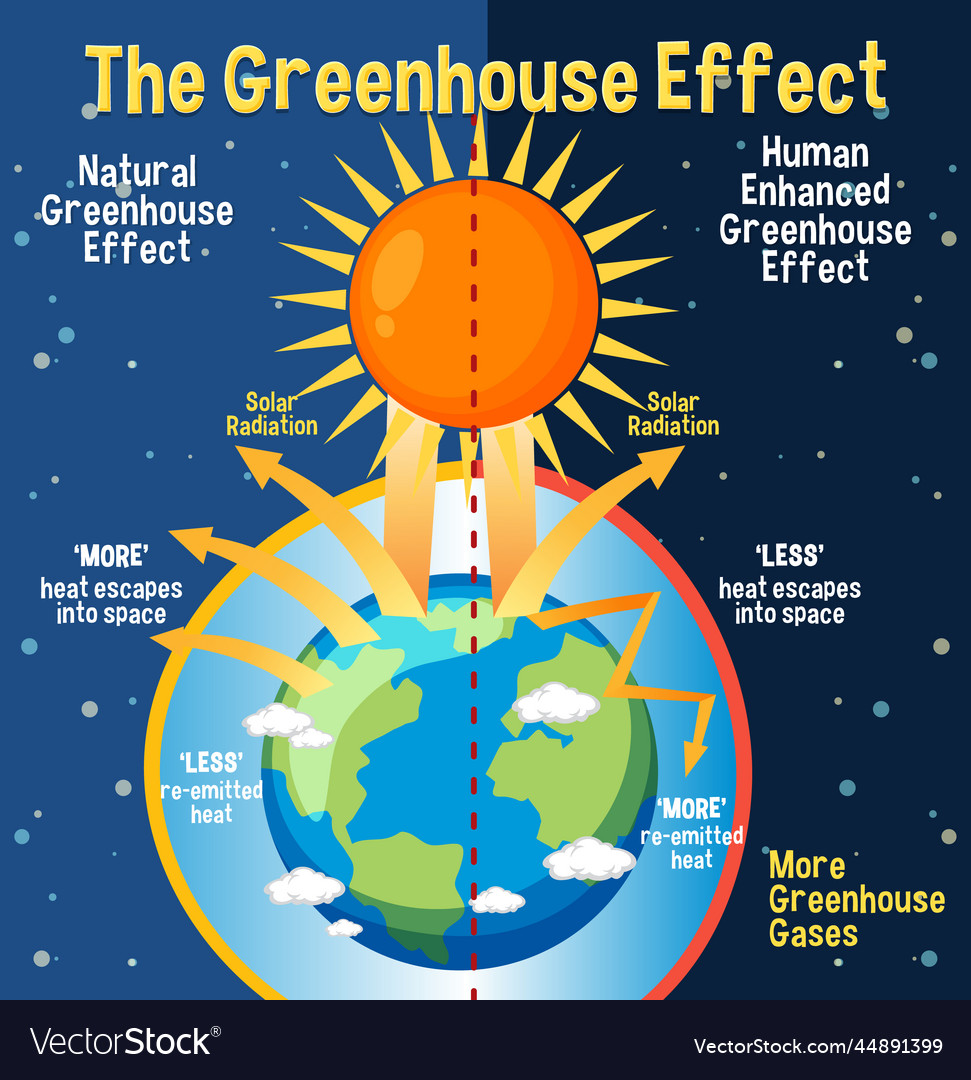
Diagram showing the greenhouse effect Royalty Free Vector
The Diagram shows Greenhouse Gases such as carbon dioxide are the primary cause for the Greenhouse Effect The major contributors to the greenhouse gases are factories, automobiles, deforestation, etc. The increased number of factories and automobiles increases the amount of these gases in the atmosphere.

greenhouse effect Kids Britannica Kids Homework Help
The scientific consensus is clear: through alterations of the carbon cycle, humans are changing the global climate by increasing the effects of something known as the greenhouse effect. Figure 21.1.a 21.1. a : This graph shows the predicted temperatures from two climate models and observed temperatures from 1880 to 2020.
:max_bytes(150000):strip_icc()/greenhouse-effect-vector-diagram-889624280-6670a804e4d2472eb71892d746c8d0df.jpg)
What Are Greenhouse Gases and the Greenhouse Effect?
The greenhouse effect is a warming of the earth's surface and lower atmosphere caused by substances such as carbon dioxide and water vapour which let the sun's energy through to the ground but impede the passage of energy from the earth back into space.. A simplified diagram illustrating the greenhouse effect (From Le Treut et al., 2007).

ESRL Global Monitoring Laboratory Education and Outreach
The greenhouse effect is the natural warming of the Earth's atmosphere. Solar radiation enters the atmosphere mainly as light, and some of that radiation is absorbed by the Earth's surface then changed to heat that is re-radiated into the atmosphere where it is absorbed by greenhouse gases then re-radiated back to Earth again.
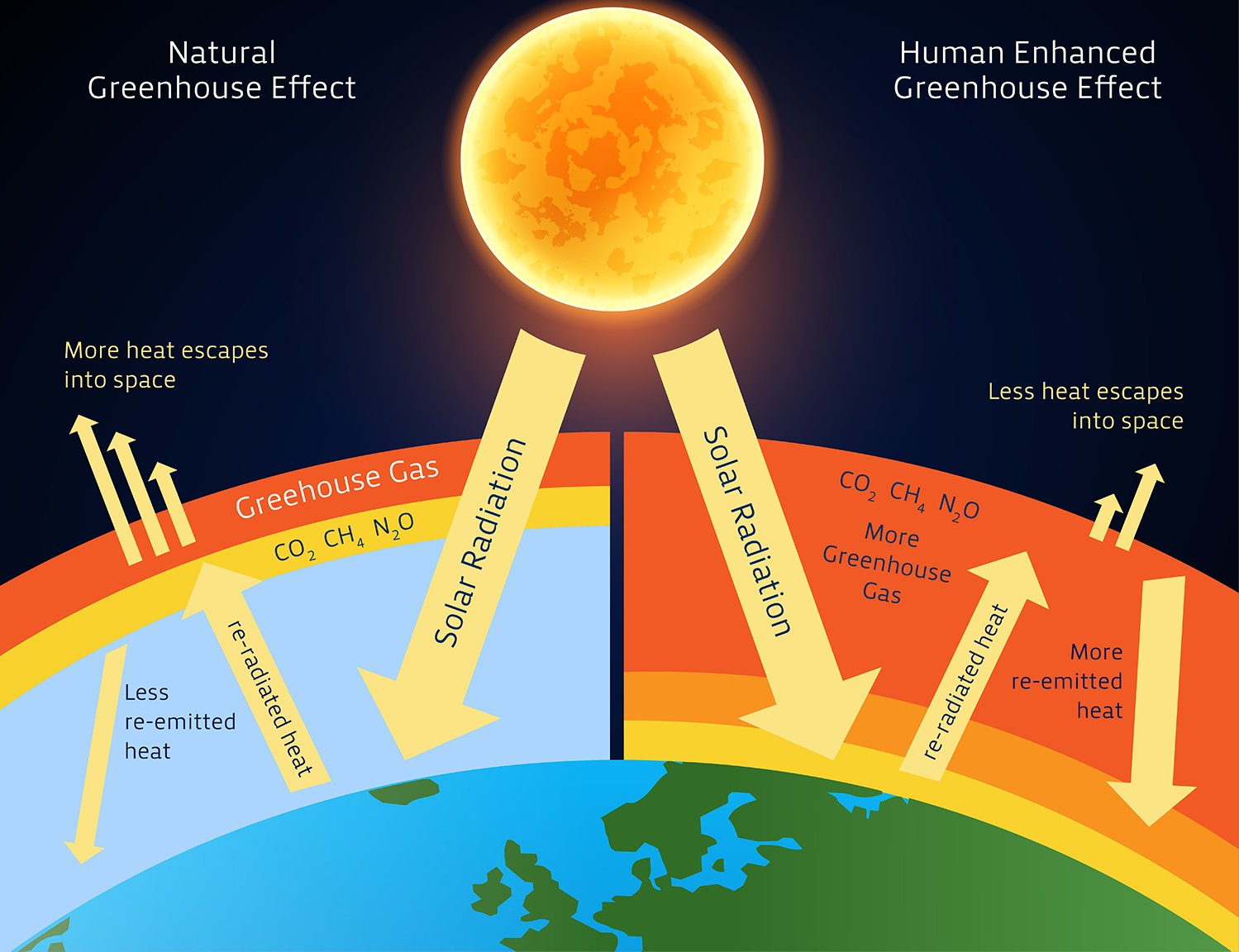
The Electronic Art of Environmental Activism (Part 1) In the Sportlight
How Does the Greenhouse Effect Work? Solar energy absorbed at Earth's surface is radiated back into the atmosphere as heat. As the heat makes its way through the atmosphere and back out to space, greenhouse gases absorb much of it. Why do greenhouse gases absorb heat?
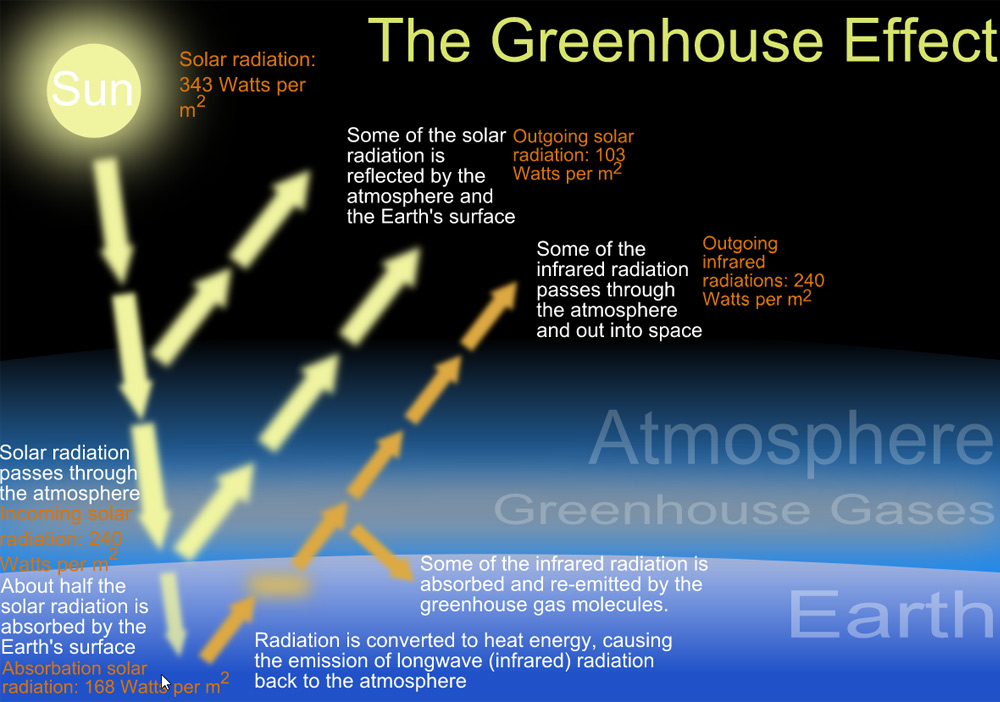
How does a Greenhouse Work? Explanation & Diagram
The greenhouse effect happens when certain gases, which are known as greenhouse gases, accumulate in Earth's atmosphere. Greenhouse gases include carbon dioxide (CO 2), methane (CH 4), nitrous oxide (N 2 O), ozone (O 3), and fluorinated gases.. Greenhouse gases allow the sun's light to shine onto Earth's surface, and then the gases, such as ozone, trap the heat that reflects back from.
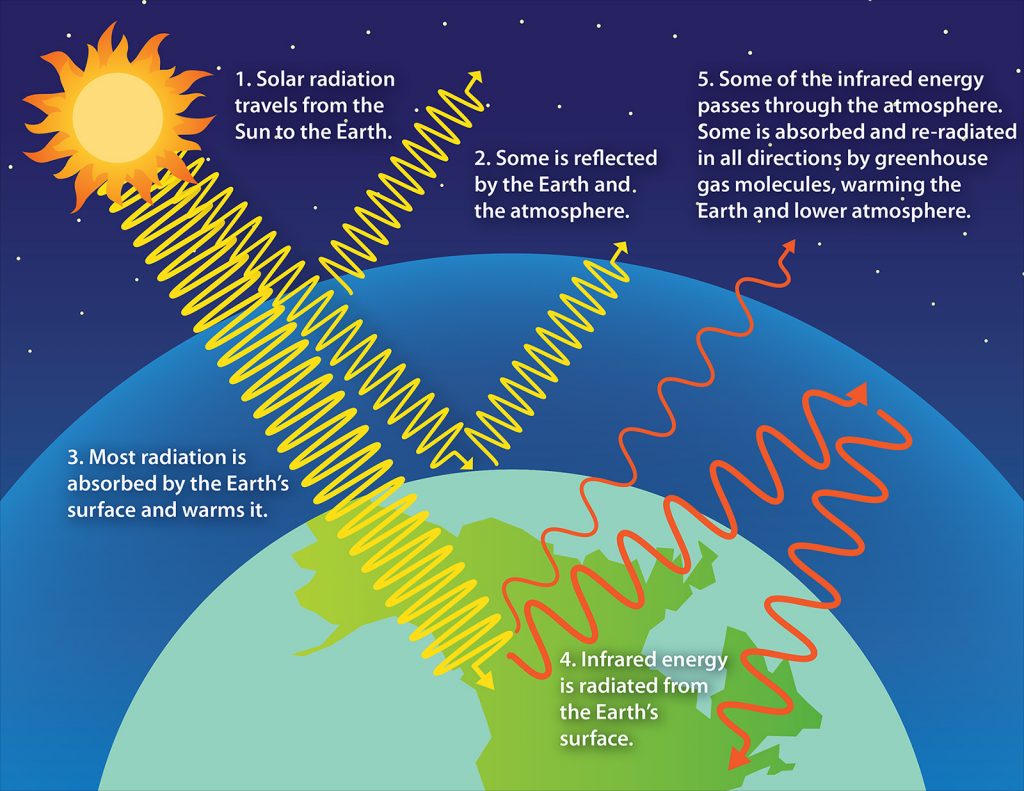
Greenhouse effect Understanding Global Change
This page titled 3.2: The Greenhouse Effect is shared under a CC BY-SA 4.0 license and was authored, remixed, and/or curated by Laci M. Gerhart-Barley. The process by which the atmosphere absorbs the sun's energy and prevents it from being radiated back out to space has often been compared to that of a greenhouse, leading to the nickname the..

Climate Change Environmental Center University of Colorado Boulder
The greenhouse effect is a natural process responsible for keeping the earth at the temperature needed to sustain life. Acting just like the glass walls of a greenhouse, gases like carbon dioxide, methane, and nitrous oxide trap the sun's heat in the atmosphere and prevent it from escaping into space. About half of the sun's radiation that.
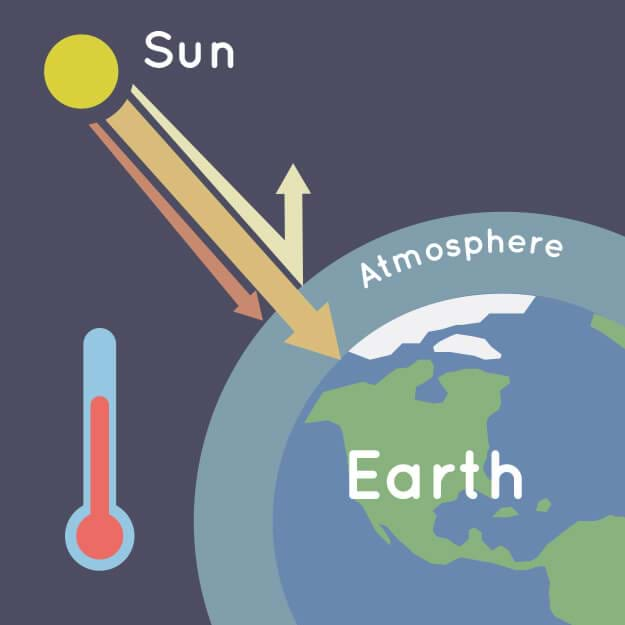
Amplified Greenhouse Effect Unit TeachEngineering
The greenhouse effect is the process through which heat is trapped near Earth's surface by substances known as 'greenhouse gases.' Imagine these gases as a cozy blanket enveloping our planet, helping to maintain a warmer temperature than it would have otherwise.

Why We Measure & Track GHGs Sustainable Practices The Office of Sustainability UMass Lowell
The diagram gives more details about this process, called the greenhouse effect . How the greenhouse effect works Electromagnetic radiation at most wavelengths passes through the Earth's.
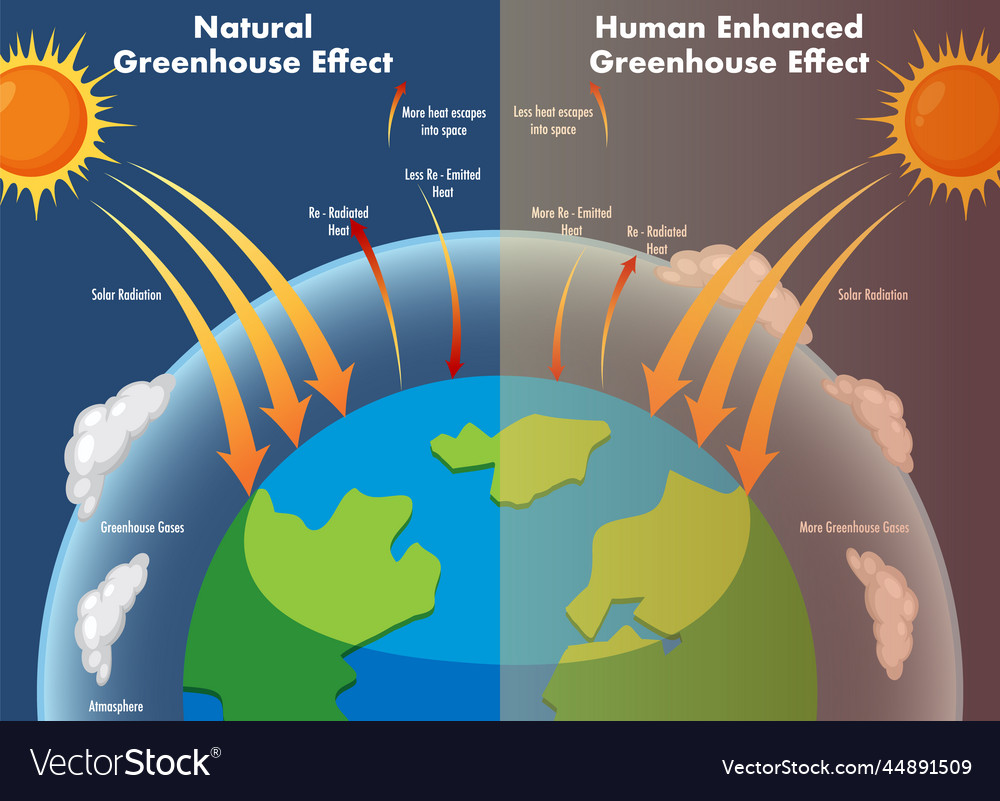
Diagram showing the greenhouse effect Royalty Free Vector
greenhouse effect, a warming of Earth 's surface and troposphere (the lowest layer of the atmosphere) caused by the presence of water vapour, carbon dioxide, methane, and certain other gases in the air. Of those gases, known as greenhouse gases, water vapour has the largest effect. The origins of the term greenhouse effect are unclear.

Define the term ‘greenhouse effect’.
A simplified animation of the greenhouse effect. Credit: NASA/JPL-Caltech (Download en español.) Related. Color-coded map of changing global surface temperature anomalies from 1880 through 2022. Video: Global Warming from 1880 to 2022